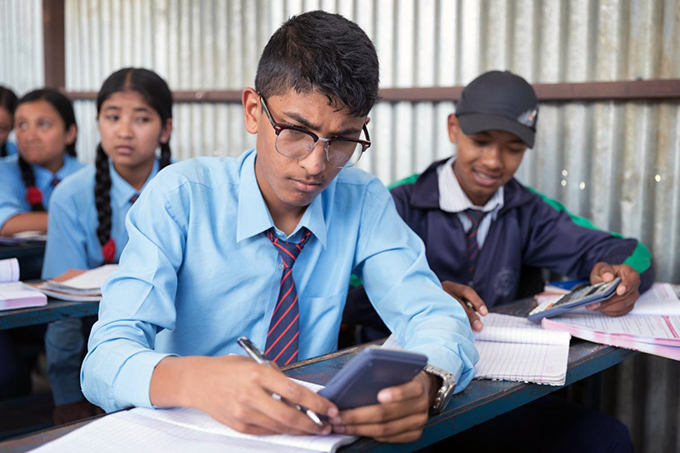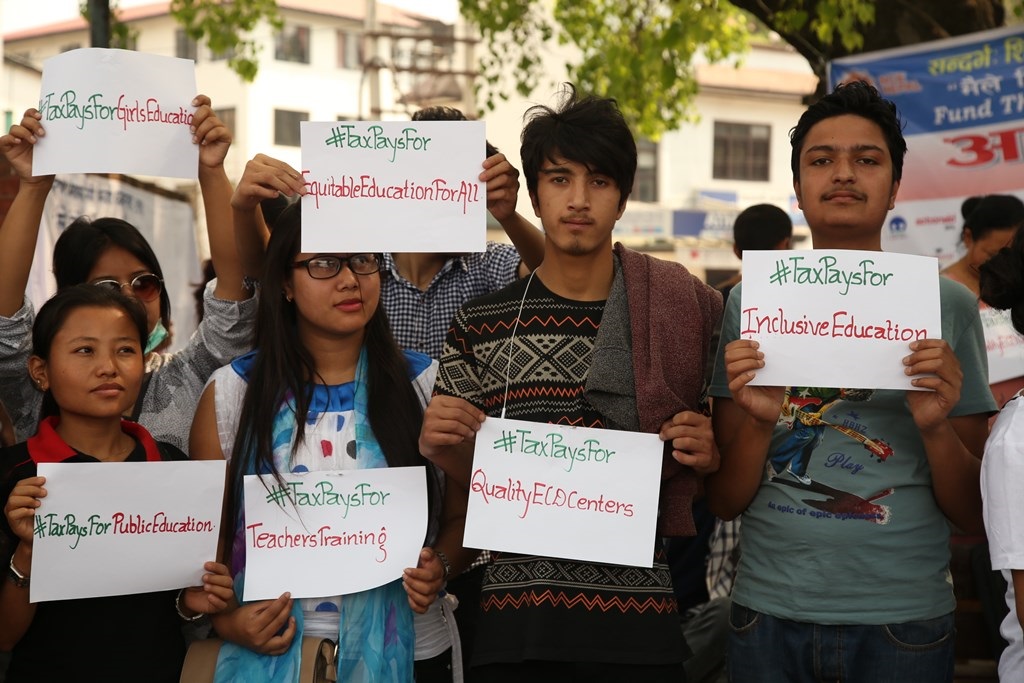Thinking outside the ‘budget box’ for better education financing
Insufficient overall revenue to fund public services means that lower-income countries, even those that commit a high share of their national budgets to education, are not on track to meet their Sustainable Development Goal (SDG) 4 commitments. Many education systems face a devastating crisis in public financing and uncertainty over the quality of learning available when children can return to schools because of years of austerity policies exacerbated by the management of the COVID-19 pandemic.
At a time of falling gross domestic product, soaring debt repayments, and health, social protection and defense competing with education for shrinking government budgets, more resources are needed, and solutions for education financing must respond to these challenges.
It is time to think outside the budget box and look at ways to increase the size of the budget, as well as the sensitivity of the allocation and the scrutiny of spending in practice.
Supported by Education Out Loud, the TaxEd Alliance brings together global tax justice and education actors to make a transformative breakthrough in the domestic financing of public education. ActionAid, the Global Alliance on Tax Justice (and regional networks Tax Justice Network Africa and Tax and Fiscal Justice Asia), the Tax Justice Network, Education International and the Global Campaign for Education movement are creating a strong civil society alliance at the national, regional and global levels to advocate for and bring about commitments to increase the domestic financing of public education systems in a sustainable and progressive way.
A multilevel approach to advocacy
TaxEd strengthens alliances at the national, regional and global levels for learning, information exchange and advocacy. The alliance focuses on Nepal, Senegal and Zambia and connects to related work in Ghana, Kenya, Malawi, Mozambique, Nigeria, Tanzania and Uganda.
The objective is to improve mechanisms for cross-sector dialogue between civil society working on education and tax and finance and education ministries, revenue authorities, local education groups and international organizations. Likewise, the initiative builds core alliance members’ capacities to undertake collaborative research, budget tracking and advocacy on gender-responsive public education.
The research tracks global, regional and national commitments related to education financing and provides evidence and solutions for how progressive taxes could transform the funding of education.
TaxEd aims to integrate the voices of marginalized communities with national-level civil society organizations, teacher organizations and tax justice alliances, and coordinate their responses across national, subregional, regional and global agendas and arenas.
At the global level, the alliance uses its extensive network and links with government and international stakeholders to follow up on and develop cross-sectoral recommendations for international education actors on the global coordination mechanism for SDG 4.
TaxEd creates a sustained and high-profile presence in global forums, facilitating connections between civil society actors and international organizations such as the International Monetary Fund and the World Bank around the role of tax in financing SDG 4.
Collaboration with governments and teachers organizations is key to achieve maximum impact
Our collaborative approach to advocacy is already proving fruitful. In Zambia, TaxEd works closely with national revenue authorities who regularly invite our teams to discuss how to raise more funds through progressive tax reforms.
High-level representatives from the Ministries of Education and Finance actively participate in validation meetings, where findings were presented to stakeholders and they were able to provide feedback to the final drafts of TaxEd’s research reports on the financing of education and attainment of SDG 4, and the analysis of Zambian taxation system.
In Nepal, the alliance is working to increase civil society organizations’ understanding, engagement in the budget preparation process at district and national levels to improve government accountability.
Specifically, the alliance conducted trainings targeted to the Sihara district, because TaxEd-produced research pointed out that in this district only 5% of education actors got involved in the budget planning process. The education ministry has expressed its appreciation in enhancing civil society organization capacity in budget participation.
Working with teachers organizations is essential to achieve the changes in policy and finance to reach SDG 4. Education International is part of the alliance along with their affiliates in the three focal countries. Enhancing their capacity to analyze the education budget at different levels, and to understand the complexities that underpin its size, is helping create deeper dialogues to find sustainable solutions that work for all.
TaxEd work in Senegal provides a good example of using research to explore innovative solutions in tax reform to raise funds for education. The validation of the findings by relevant stakeholders including government officials, other CSOs, academics, and community members, enabled teachers organizations to voice their concerns and to draft conclusions and recommendations together with members of the TaxEd Alliance.
This blog was originally published on GPE's website.

